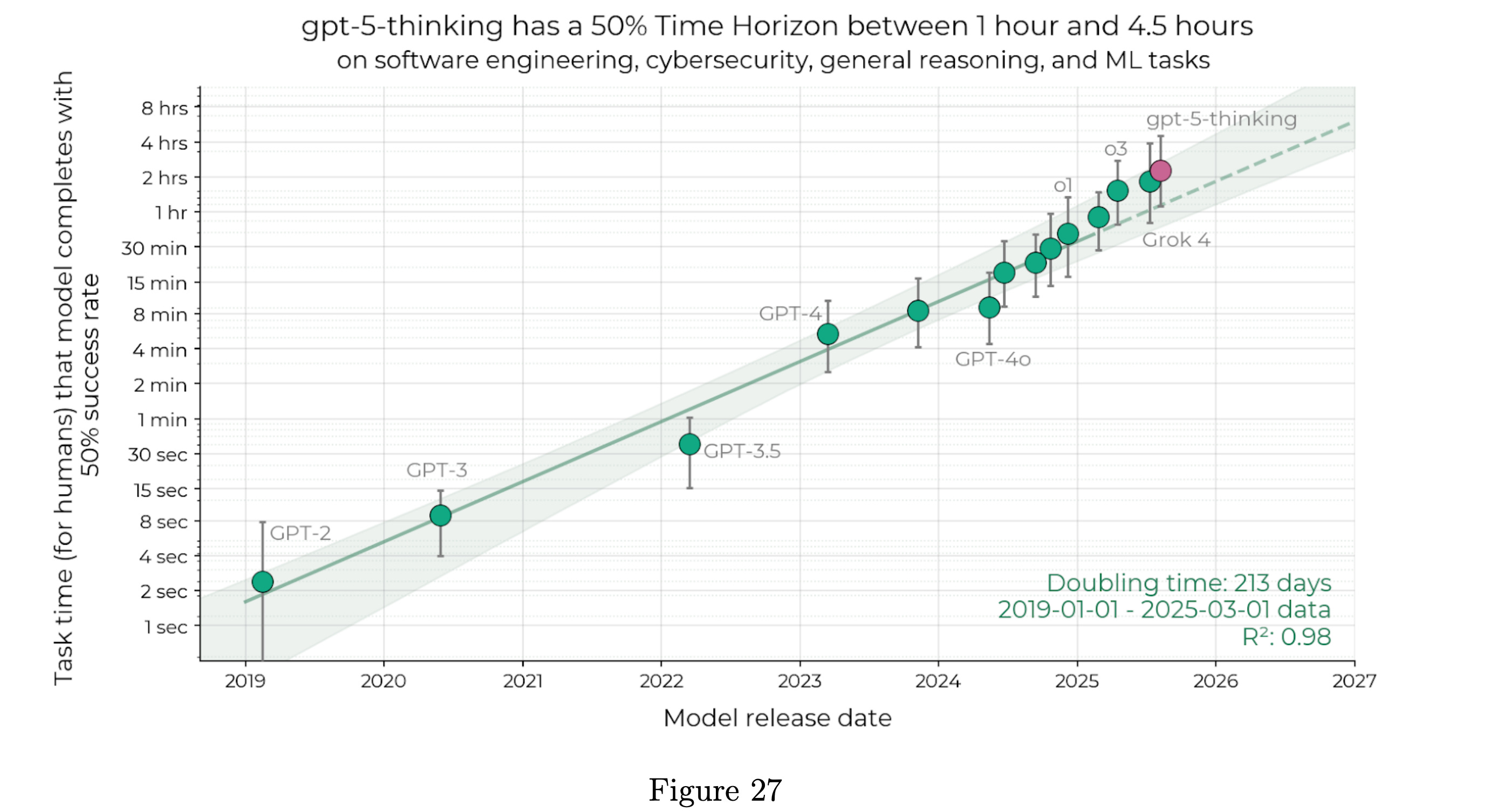Podcast Episode Details
Back to Podcast Episodes
GPT-5 and the arc of progress
If you want a video version of this, check out the last 20 minutes of the livestream reaction (edit, fixed link) I did with Will Brown of Prime Intellect and Swyx of Smol AI & Latent Space.
GPT-5 was set up to fail on some of the narratives it was expected to satisfy. The two central themes it had to decide between were the AGI (or superintelligence) narrative that Sam Altman & co. have been using to fundraise and the fact that ChatGPT is one of the fastest-growing consumer technologies of all time.
To fulfill both, GPT-5 needed to be AGI while also being cheap enough to serve as the most-used AI system in the world. Business and technological realities made it inevitable that GPT-5’s primary impact would be to solidify OpenAI’s market position, even if it raises a lot of eyebrows for the long-term trajectory of AI.
The reactions online capture this as well. The OpenAI live streams have historically catered to AI insiders, but the product speaks entirely to a different audience. The people discussing this release on Twitter will be disappointed in a first reaction, but 99% of people using ChatGPT are going to be so happy about the upgrade. Confusingly enough, this includes many of the critics. GPT-5 is a good AI system. It’s right in line with best-in-class across pretty much every evaluation, while being cheap enough to serve the whole world.
OpenAI is largely fixing its product offering with an announcement that was hyped to be one of the biggest AI news cycles of the year. AI news being loud is defined by narratives being different more-so than technology being better. OpenAI releasing an open model again will likely be pinpointed as just as important a day for the arc of AI as the GPT-5 release. In many ways GPT-5 was set up to fail and that is very off-putting for those expecting maximum AI progress in the near term.
I’m not going to dwell on it, but oh boy, that was a messy release. GPT-5 being announced and rolled out like this is very odd. Countless plots were mislabeled, live demos had bugs, and the early rollout is doing some weird stuff. This reinforces how OpenAI was torn about the release and backed into a corner with their messaging. They knew they needed to improve the experience with strong competition in the industry, but releasing GPT-5 needed to make a splash after how long they’ve waited (and already parked the GPT 4.5 name).
The core question we track in this post is: What does it mean for the next 6-18 months of AI progress if GPT-5 is just as good as all the best models out there, e.g., Claude Sonnet for coding or o3 for search, funneled into one, super cheap package?
If AGI was a real goal, the main factor on progress would be raw performance. GPT-5 shows that AI is on a somewhat more traditional technological path, where there isn’t one key factor, it is a mix of performance, price, product, and everything in between.
Interconnects is a reader-supported publication. Consider becoming a subscriber.
GPT-5’s performance
There are a few places that we can see that GPT-5 represents a solid step on the performance trend line, but nothing like a step change. First, on LMArena, GPT-5 is fantastic, sweeping the board to #1 on all categories. The last model to claim #1 in pretty much every category was Gemini 2.5 Pro — and that was the biggest step change in Elo since GPT-4 Turbo skyrocketed past the first Claude.
Second, GPT-5 is the top model on the Published on 1 month, 1 week ago